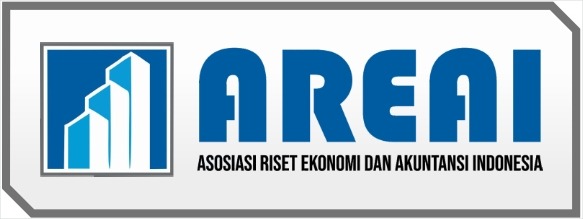Transparency and Accountability in the Digital Era: Insights from Public Sector Accounting
DOI:
https://doi.org/10.61194/ijat.v3i3.864Keywords:
Digital Transformation, Public Sector Accounting, E-Government Platforms, Big Data Analytics, Transparency, Accountability, Governance ReformAbstract
This study presents a narrative review examining how digital transformation reshapes public sector accounting by synthesizing recent literature on its opportunities, challenges, and policy implications. The review aims to analyze the transition from manual to digital and data-driven systems using a structured and integrative approach. Literature from Scopus and Web of Science was reviewed through targeted keywords—digital transformation, e-government, and public sector accounting—focusing on peer-reviewed studies published between 2010 and 2024 to ensure quality and relevance. Findings reveal that digital accounting systems enhance operational efficiency and reduce fraud risks, while e-government platforms improve transparency and citizen engagement by increasing access to financial data. The integration of big data analytics and forensic accounting strengthens auditing and oversight, though implementation success largely depends on infrastructure readiness and institutional support. Human capital emerges as a decisive factor, as digital literacy gaps among accountants and auditors hinder effective adoption. Persistent challenges include organizational resistance, limited resources, and data security risks across regions. Drawing on institutional theory, the discussion highlights how structural and cultural factors influence adoption patterns and outcomes. The study concludes that the transformative potential of digitalization in public sector accounting can only be realized through comprehensive strategies integrating technological investment, capacity building, and supportive policy frameworks. Future research should explore longitudinal and cross-regional analyses to deepen understanding of digital transformation’s long-term impacts on governance and accountability.
References
Aiyub, I., Jannah, S., Marthoenis, M., Abdullah, A., & Sofyan, H. (2023). Peer stigma, consequences, and anti-stigma strategies in adolescents with mental disorders: a qualitative investigation. Journal of Public Mental Health, 22(2), 60-72. https://doi.org/10.1108/jpmh-09-2022-0095 DOI: https://doi.org/10.1108/JPMH-09-2022-0095
Ali, S., Hussain, S., Ishaq, M., Ali, S., Naureen, F., Noor, A., … & Anjum, N. (2019). 3ts of low cure rate: taxonomy, themes and theory of low cure rate in pakistan’s tb control programme and gathering a 360-degree perspective through qualitative, in-depth interviewing approach. BMJ Open, 9(7), e025707. https://doi.org/10.1136/bmjopen-2018-025707 DOI: https://doi.org/10.1136/bmjopen-2018-025707
Alsharari, N., & Ikem, F. (2023). Digital accounting systems and information technology in the public sector: mutual interaction. Journal of Systems and Information Technology, 25(1), 53-73. https://doi.org/10.1108/jsit-09-2021-0190 DOI: https://doi.org/10.1108/JSIT-09-2021-0190
Andersen, M., Urstad, K., Larsen, M., Henrichsen, G., Engebretsen, E., Ødemark, J., … & Wahl, A. (2021). Intervening on health literacy by knowledge translation processes in kidney transplantation: a feasibility study. Journal of Renal Care, 48(1), 60-68. https://doi.org/10.1111/jorc.12379 DOI: https://doi.org/10.1111/jorc.12379
Agostino, D., Bracci, E., & Steccolini, I. (2021). Accounting and accountability for the digital transformation of public services. Financial Accountability and Management, 38(2), 145-151. https://doi.org/10.1111/faam.12314 DOI: https://doi.org/10.1111/faam.12314
Agostino, D., Saliterer, I., & Steccolini, I. (2021). Digitalization, accounting and accountability: a literature review and reflections on future research in public services. Financial Accountability and Management, 38(2), 152-176. https://doi.org/10.1111/faam.12301 DOI: https://doi.org/10.1111/faam.12301
Deliu, D., & Olariu, A. (2024). The role of artificial intelligence and big data analytics in shaping the future of professions in industry 6.0: perspectives from an emerging market. Electronics, 13(24), 4983. https://doi.org/10.3390/electronics13244983 DOI: https://doi.org/10.3390/electronics13244983
Eltrudis, D., Monfardini, P., & Pattaro, A. (2024). Public auditors’ perception of digital platforms for popular reporting: insights from the case study of openbdap. International Journal of Public Sector Management. https://doi.org/10.1108/ijpsm-01-2024-0012 DOI: https://doi.org/10.1108/IJPSM-01-2024-0012
Grossi, G., & Argento, D. (2022). The fate of accounting for public governance development. Accounting Auditing & Accountability Journal, 35(9), 272-303. https://doi.org/10.1108/aaaj-11-2020-5001 DOI: https://doi.org/10.1108/AAAJ-11-2020-5001
Guzmán, M. (2023). Competencias digitales en profesionales de la contaduría pública. Human Review International Humanities Review / Revista Internacional De Humanidades, 12(3), 1-10. https://doi.org/10.37467/revhuman.v12.4733 DOI: https://doi.org/10.37467/revhuman.v12.4733
Hurtienne, M., Knowles, J., & Hurtienne, L. (2022). Participant photography for hrd: method, benefits, and ethics. European Journal of Training and Development, 46(7/8), 740-753. https://doi.org/10.1108/ejtd-07-2021-0116 DOI: https://doi.org/10.1108/EJTD-07-2021-0116
Leonard, J. (2023). Staying in my lane: an exploration of counsellors' and psychotherapists' understanding and use of nutrition in the therapy room. Counselling and Psychotherapy Research, 24(2), 545-557. https://doi.org/10.1002/capr.12689 DOI: https://doi.org/10.1002/capr.12689
Malkin, G., Hayat, T., Amichai‐Hamburger, Y., Ben‐David, B., Regev, T., & Nakash, O. (2019). How well do older adults recognise mental illness? a literature review. Psychogeriatrics, 19(5), 491-504. https://doi.org/10.1111/psyg.12427 DOI: https://doi.org/10.1111/psyg.12427
Maslowski, A., LaCaille, R., LaCaille, L., Reich, C., & Klingner, J. (2019). Effectiveness of mental health first aid: a meta-analysis. Mental Health Review Journal, 24(4), 245-261. https://doi.org/10.1108/mhrj-05-2019-0016 DOI: https://doi.org/10.1108/MHRJ-05-2019-0016
Monlezun, D., & Mackay, K. (2024). Artificial intelligence and health inequities in dietary interventions on atherosclerosis: a narrative review. Nutrients, 16(16), 2601. https://doi.org/10.3390/nu16162601 DOI: https://doi.org/10.3390/nu16162601
Morrison, J., Akter, K., Jennings, H., Nahar, T., Kuddus, A., Shaha, S., … & Fottrell, E. (2019). Participatory learning and action to address type 2 diabetes in rural bangladesh: a qualitative process evaluation. BMC Endocrine Disorders, 19(1). https://doi.org/10.1186/s12902-019-0447-3 DOI: https://doi.org/10.1186/s12902-019-0447-3
Mosweu, O., & Ngoepe, M. (2021). Trustworthiness of digital records in government accounting system to support the audit process in botswana. Records Management Journal, 31(1), 89-108. https://doi.org/10.1108/rmj-11-2019-0069 DOI: https://doi.org/10.1108/RMJ-11-2019-0069
Waltz, M., Moberly, H., & Carrigan, E. (2020). Identifying information literacy skills and behaviors in the curricular competencies of health professions. Journal of the Medical Library Association JMLA, 108(3). https://doi.org/10.5195/jmla.2020.833 DOI: https://doi.org/10.5195/jmla.2020.833
Chanias, S. (2017). Mastering Digital Transformation: The Path of a Financial Services Provider Towards a Digital Transformation Strategy. Proceedings of the 25th European Conference on Information Systems, ECIS 2017, 16–31.
Mergel, I., Kattel, R., Lember, V., & McBride, K. (2018). Citizen- oriented digital transformation in the public sector. ACM International Conference Proceeding Series, June. https://doi.org/10.1145/3209281.320 DOI: https://doi.org/10.1145/3209281.3209294
Downloads
Published
How to Cite
Issue
Section
License
Copyright (c) 2025 Putri Ayu Lestari

This work is licensed under a Creative Commons Attribution 4.0 International License.






